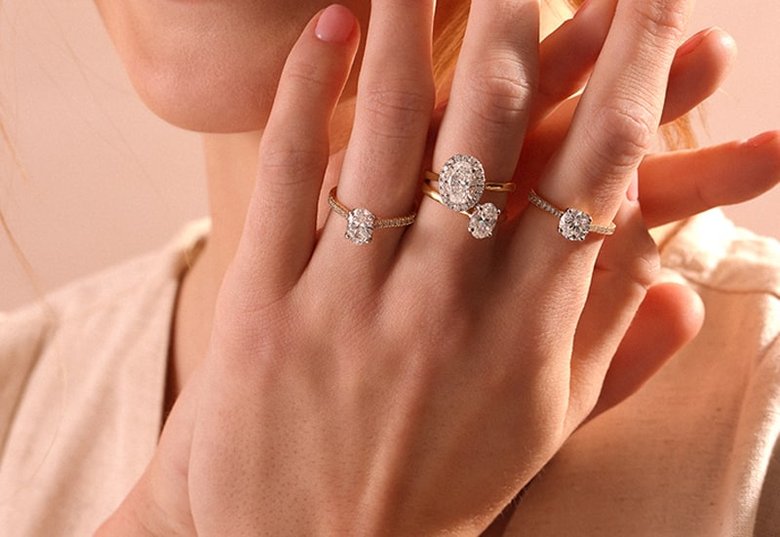Lab-grown diamonds have become increasingly popular for their ethical appeal and environmental benefits, offering an alternative to mined diamonds. As this market grows, choosing the right certification for a lab-grown diamond is key. Two major players in the certification of diamonds are the Gemological Institute of America (GIA) and the International Gemological Institute (IGI). Both organizations play pivotal roles in grading diamonds, but they have differences in their grading systems, focus, and global recognition. Here’s a detailed comparison of IGI vs GIA for lab-grown diamonds.
1. Certification Standards:
- GIA (Gemological Institute of America): The GIA is one of the most respected and renowned gemological labs globally. It is known for its rigorous and unbiased grading systems for both natural and lab-grown diamonds. GIA grades diamonds based on the “Four Cs” — Carat, Cut, Clarity, and Color — and offers comprehensive reports detailing each of these aspects. For lab-grown diamonds, the GIA issues separate certificates that clearly state that the diamond is lab-grown, ensuring transparency in the market.
- IGI (International Gemological Institute): The IGI is also a highly respected certification body, particularly popular in Europe and Asia. While IGI’s grading standards are similar to those of GIA, it has a slightly different approach to the grading process. IGI is known for grading both natural and lab-grown diamonds. While it provides a detailed grading report, some jewelers and consumers perceive IGI as more lenient or less conservative in its grading compared to GIA. This means that IGI diamonds may sometimes receive more favorable grades for certain qualities (such as clarity) than GIA diamonds.
2. Grading Lab-Grown Diamonds:
- GIA: GIA’s approach to lab-grown diamonds is highly respected for its thoroughness. The institute uses advanced technology and expert gemologists to assess lab-grown diamonds and clearly differentiates them from natural diamonds in its reports. The lab-grown diamonds are identified with a laser inscription on the diamond girdle that states “Lab Grown.” GIA’s transparency and consistency in grading have contributed to its high global recognition.
- IGI: IGI also distinguishes lab-grown diamonds from natural diamonds, but it has faced criticism for potentially being less strict in its grading process, especially in terms of clarity and cut. Some believe that IGI might be more lenient in grading diamonds, which can result in slightly higher grades. While IGI is still a reputable institute, its grading reports are sometimes perceived as more lenient compared to GIA’s, making IGI diamonds slightly more attractive for some buyers who prioritize high grades.
3. Global Recognition and Trust:
- GIA: The igi vs gia lab grown is widely considered the gold standard in diamond grading. Established in 1931, the GIA has built its reputation as the most respected gemological institute, particularly in North America. Its rigorous grading methods and extensive research in the diamond industry have earned it unparalleled trust from jewelers, consumers, and industry professionals. As a result, GIA-certified diamonds, including lab-grown diamonds, tend to hold their value better and enjoy higher demand due to the credibility of their certification.
- IGI: The IGI is also globally recognized, especially in markets such as Europe, the Middle East, and Asia. It is regarded as a leading lab in diamond grading, though not to the same extent as the GIA in terms of global influence. IGI is well-respected, but it does not always carry the same weight in the diamond industry as GIA, particularly in North America. The IGI’s certification is trusted, but it may not have the same level of prestige or resale value that GIA certifications do.
4. Price and Consumer Perception:
- GIA: Due to the GIA’s stringent grading standards and global reputation, diamonds graded GIA, including lab-grown ones, may often be priced higher compared to those from other labs. Consumers perceive GIA certificates as a symbol of trust, and this often translates into higher pricing for GIA-certified lab-grown diamonds. For those seeking a more reputable certification with high resale value and investment potential, GIA is generally the preferred choice.
- IGI: IGI-certified diamonds tend to be more affordable, reflecting their slightly less conservative grading compared to GIA. While this makes IGI diamonds attractive for budget-conscious buyers, it may lead some to question their long-term value. However, for those looking for a more affordable lab-grown diamond without compromising on quality, IGI provides a more cost-effective option.
5. Consumer Education and Transparency:
- GIA: GIA is known for its commitment to consumer education. It provides a wealth of information on its website, including detailed guides about lab-grown diamonds, the 4Cs, and how to interpret a GIA certificate. This level of transparency and dedication to educating consumers contributes to the trust and respect it has earned over the years.
- IGI: IGI also offers educational materials and is transparent about its grading processes. However, it may not offer the same level of consumer-focused education as the GIA. While it is still an excellent resource, some consumers may find GIA’s outreach and educational efforts more comprehensive.
6. Final Thoughts:
- Choose GIA for:
- Strict grading standards and reliability.
- High global recognition and resale value.
- Transparency in the differentiation between natural and lab-grown diamonds.
- Consistency and credibility in its grading system.
- Choose IGI for:
- More affordable pricing for lab grown diamonds.
- Lenient grading system for a potentially higher grade diamond.
- Global recognition, particularly in Europe and Asia.
- More competitive options for consumers seeking value without compromising quality.
Both IGI and GIA are reputable organizations, but GIA is often the go-to choice for those prioritizing strict standards, global prestige, and long-term value. IGI, while respected, may offer more attractive pricing for buyers who are looking for great quality at a better price point, particularly if resale value is not a primary concern. The choice between IGI and GIA depends on individual preferences, budget, and the level of trust one places in grading institutions.

